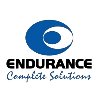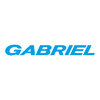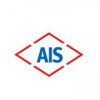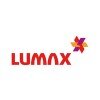Filter interviews by
Shriram Pistons & Rings Interview Questions and Answers for Experienced
19 Interview questions
Progressed from technician to senior manager through dedication and hard work
Started as a maintenance technician at XYZ Company
Consistently demonstrated strong technical skills and leadership abilities
Promoted to maintenance supervisor after 3 years
Led a team of technicians and improved maintenance processes
Promoted to senior manager maintenance after 5 years
IATF clauses are specific requirements outlined in the IATF 16949 standard for automotive quality management systems.
Clause 4 - Context of the organization
Clause 5 - Leadership
Clause 6 - Planning
Clause 7 - Support
Clause 8 - Operation
Clause 9 - Performance evaluation
Clause 10 - Improvement
The least count of a vernier caliper is the smallest measurement that can be read on the scale.
The least count is determined by the number of divisions on the main scale and the vernier scale.
It is calculated as the difference between one smallest division on the main scale and one division on the vernier scale.
For example, if the main scale has divisions of 1 mm and the vernier scale has 10 divisions that cover 9...
Least count of Micrometre is 0.01 mm
The least count of a micrometer is the smallest measurement that can be read on the scale of the micrometer.
For a standard micrometer, the least count is typically 0.01 mm or 0.001 inches.
This means that the micrometer can measure to the nearest 0.01 mm or 0.001 inches.
Quality is the measure of excellence or superiority of a product or service.
Quality is meeting or exceeding customer expectations.
It involves consistency, reliability, and conformance to requirements.
Quality can be subjective and may vary depending on the context.
Examples include a defect-free product, timely delivery, and excellent customer service.
IATF stands for International Automotive Task Force.
IATF is a group of automotive manufacturers and their respective trade associations, formed to provide improved quality products to automotive customers worldwide.
IATF develops and maintains the ISO/TS 16949 standard, which is a common automotive quality system requirement based on ISO 9001.
Companies in the automotive industry often seek IATF certification to dem...
This company specializes in innovative materials solutions for various industries, enhancing performance and sustainability.
Focus on research and development to create cutting-edge materials.
Partnerships with leading universities for advanced material science.
Sustainability initiatives, such as using recycled materials in production.
Diverse applications across sectors like automotive, aerospace, and healthcare.
Adding petrol in diesel engine or vice versa can cause serious damage to the engine.
Petrol in diesel engine can cause damage to fuel pump and injectors
Diesel in petrol engine can cause damage to spark plugs and catalytic converter
It is important to drain the fuel tank and flush the system if wrong fuel is added
Prevention is better than cure, always double check before refueling
CNC machine is a computer-controlled machine tool used for precision machining.
CNC stands for Computer Numerical Control
It uses a computer program to control the movement of the machine
It can perform complex cuts and shapes with high precision
Examples include CNC mills, lathes, routers, and plasma cutters
Quality assurance is the process of ensuring that products or services meet specified requirements and standards.
Quality assurance involves establishing and implementing processes to prevent defects and errors.
It includes activities such as planning, designing, and executing tests to verify product quality.
Quality assurance also involves monitoring and evaluating processes to identify areas for improvement.
Example...
Shriram Pistons & Rings Interview Experiences for Experienced
42 interviews found
I applied via Naukri.com and was interviewed in May 2024. There was 1 interview round.
(2 Questions)
- Q1. Job profile in current company
- Ans.
I lead strategic sourcing initiatives, optimizing supplier relationships and driving cost efficiencies across various categories.
Develop and implement sourcing strategies to reduce costs by 15% annually.
Manage supplier negotiations, achieving favorable terms and conditions.
Conduct market analysis to identify potential suppliers and assess risks.
Collaborate with cross-functional teams to align sourcing strategies with b...
- Q2. Practical discussion on current role
Interview Preparation Tips
Simply personal introduction
(2 Questions)
- Q1. Technical knowledge automobile components?
- Q2. Micrometres, Vernier caliper list count?
I applied via Naukri.com and was interviewed in Jun 2024. There was 1 interview round.
(1 Question)
- Q1. General ic engine question
Interview Preparation Tips
Math, reg, English, gk and technical
I applied via Naukri.com and was interviewed in Feb 2024. There was 1 interview round.
(2 Questions)
- Q1. Bearing pump gear conveyor
- Q2. Bearing type Pump type Gear type Backless Spindle assembly
I applied via Referral and was interviewed in Jun 2024. There was 1 interview round.
Aptitude test is best for job seekers
Interview Preparation Tips
- Communication Skills
- Prectical
- Machines
- Personal interview
- Background Verification
I applied via Approached by Company and was interviewed in Jun 2023. There were 3 interview rounds.

(3 Questions)
- Q1. Engine related questions asked
- Q2. Stroke details in Engine
- Ans.
Stroke details in Engine refer to the movement of the piston within the cylinder during the combustion process.
The four strokes in an engine are intake, compression, power, and exhaust.
During the intake stroke, the piston moves downward, allowing the air-fuel mixture to enter the cylinder.
In the compression stroke, the piston moves upward, compressing the air-fuel mixture.
The power stroke is when the spark plug ignites...
- Q3. General knowledge current affairs
(1 Question)
- Q1. Asked about previous experience
(1 Question)
- Q1. Previous company POS, Dwm
(1 Question)
- Q1. Salary discussion and personal profile
I applied via Recruitment Consulltant and was interviewed in Aug 2023. There were 2 interview rounds.

(2 Questions)
- Q1. Tell your carrier journey
- Ans.
Progressed from technician to senior manager through dedication and hard work
Started as a maintenance technician at XYZ Company
Consistently demonstrated strong technical skills and leadership abilities
Promoted to maintenance supervisor after 3 years
Led a team of technicians and improved maintenance processes
Promoted to senior manager maintenance after 5 years
- Q2. Aim of TPM What is MTBF What's your KPI What's the Temperature of sealed quench furnace Why u looking for job change
- Ans.
TPM aims to maximize equipment effectiveness through proactive maintenance strategies. MTBF is Mean Time Between Failures. KPIs are key performance indicators. Sealed quench furnace temperature varies based on process requirements.
TPM aims to minimize equipment downtime and maximize productivity through proactive maintenance strategies
MTBF is a measure of the average time between failures of a system or component
KPIs a...
Interview Preparation Tips
- Go through your job profile
I applied via Walk-in
0.5 Hr about my education and my family background
Interview Preparation Tips
Top trending discussions






Shriram Pistons & Rings Interview FAQs
Some of the top questions asked at the Shriram Pistons & Rings interview for experienced candidates -
The duration of Shriram Pistons & Rings interview process can vary, but typically it takes about less than 2 weeks to complete.
Tell us how to improve this page.
Shriram Pistons & Rings Interviews By Designations
- Shriram Pistons & Rings Senior Engineer Interview Questions
- Shriram Pistons & Rings Trainee Interview Questions
- Shriram Pistons & Rings Senior Assistant Engineer Interview Questions
- Shriram Pistons & Rings Diploma Trainee Engineer Interview Questions
- Shriram Pistons & Rings Executive Interview Questions
- Shriram Pistons & Rings Production Engineer Interview Questions
- Shriram Pistons & Rings Associate Engineer Interview Questions
- Shriram Pistons & Rings MSR-Mechanic Sales Representative Interview Questions
- Show more
Interview Questions for Popular Designations
Overall Interview Experience Rating
based on 18 interview experiences
Difficulty level
Duration
Interview Questions from Similar Companies
Shriram Pistons & Rings Reviews and Ratings
based on 1.1k reviews
Rating in categories
|
Senior Associate Engineer
223
salaries
| ₹3 L/yr - ₹7 L/yr |
|
Assistant Manager
154
salaries
| ₹12 L/yr - ₹20.1 L/yr |
|
Associate Engineer
138
salaries
| ₹2 L/yr - ₹5 L/yr |
|
Senior Engineer
124
salaries
| ₹5.5 L/yr - ₹12.4 L/yr |
|
Assistant Engineer
109
salaries
| ₹4.8 L/yr - ₹10.2 L/yr |

JBM Group

Subros

Endurance Technologies

Spark Minda
- Home >
- Interviews >
- Shriram Pistons & Rings Interview Questions >
- Shriram Pistons & Rings Interview Questions for Experienced














